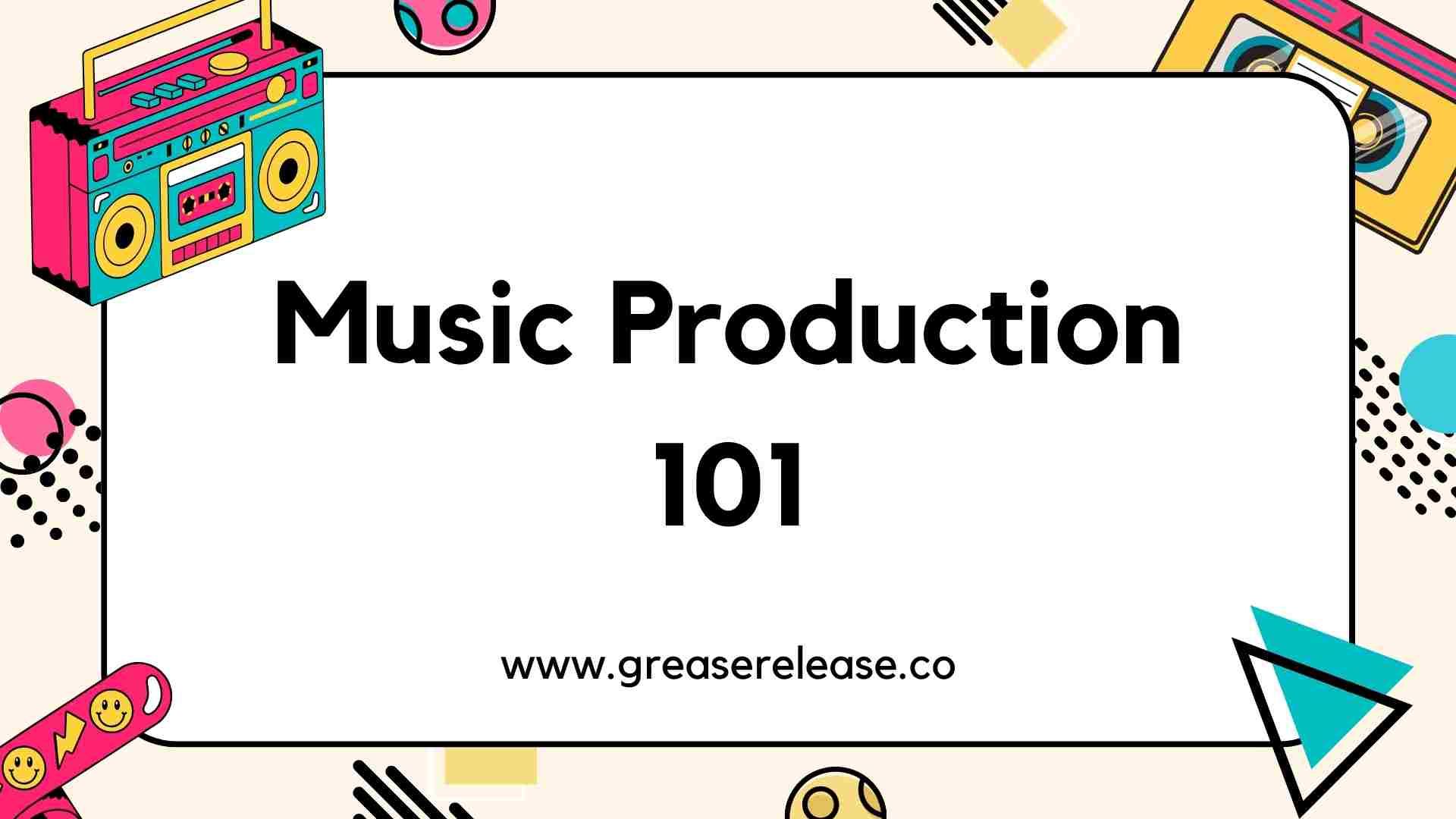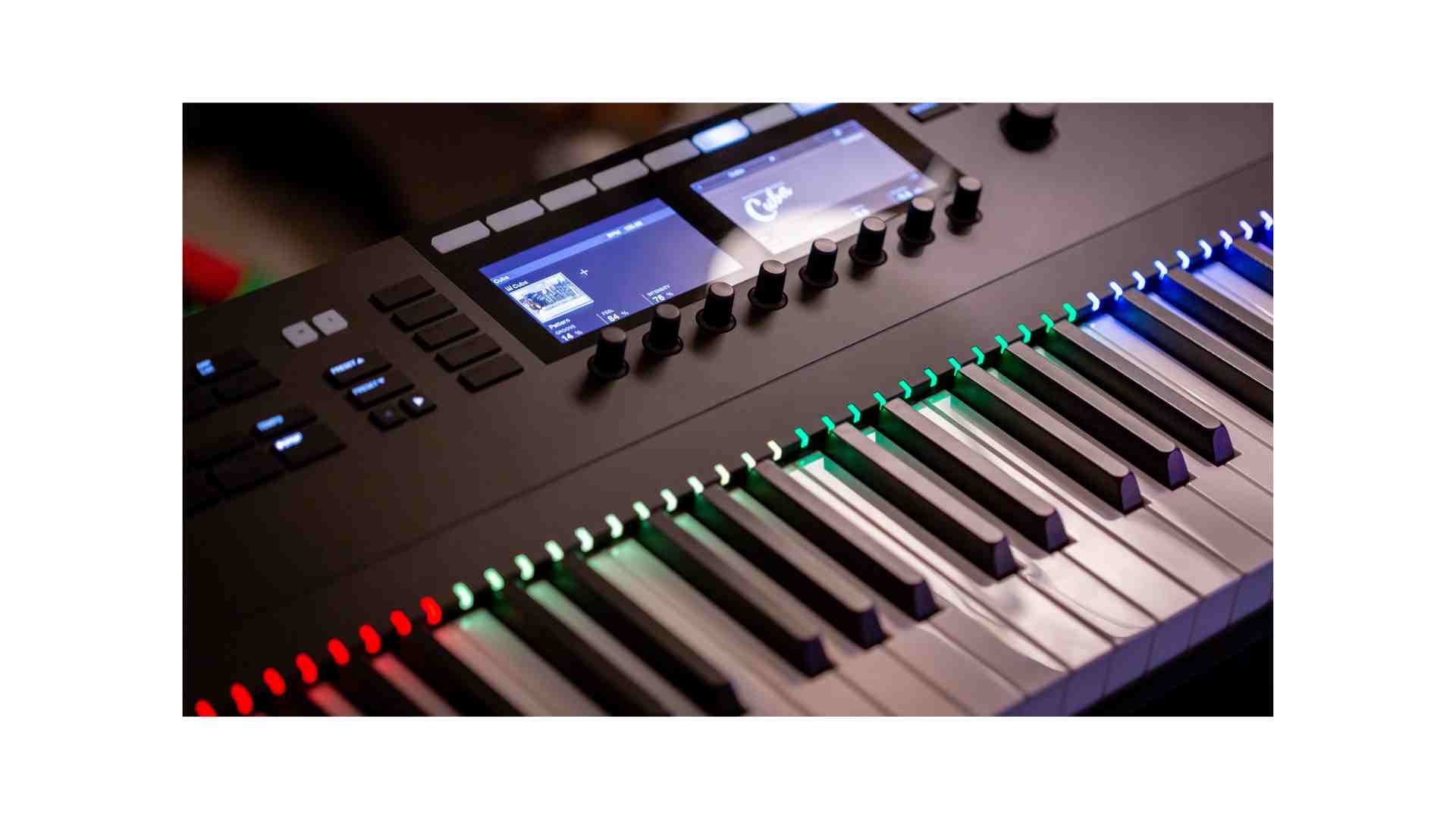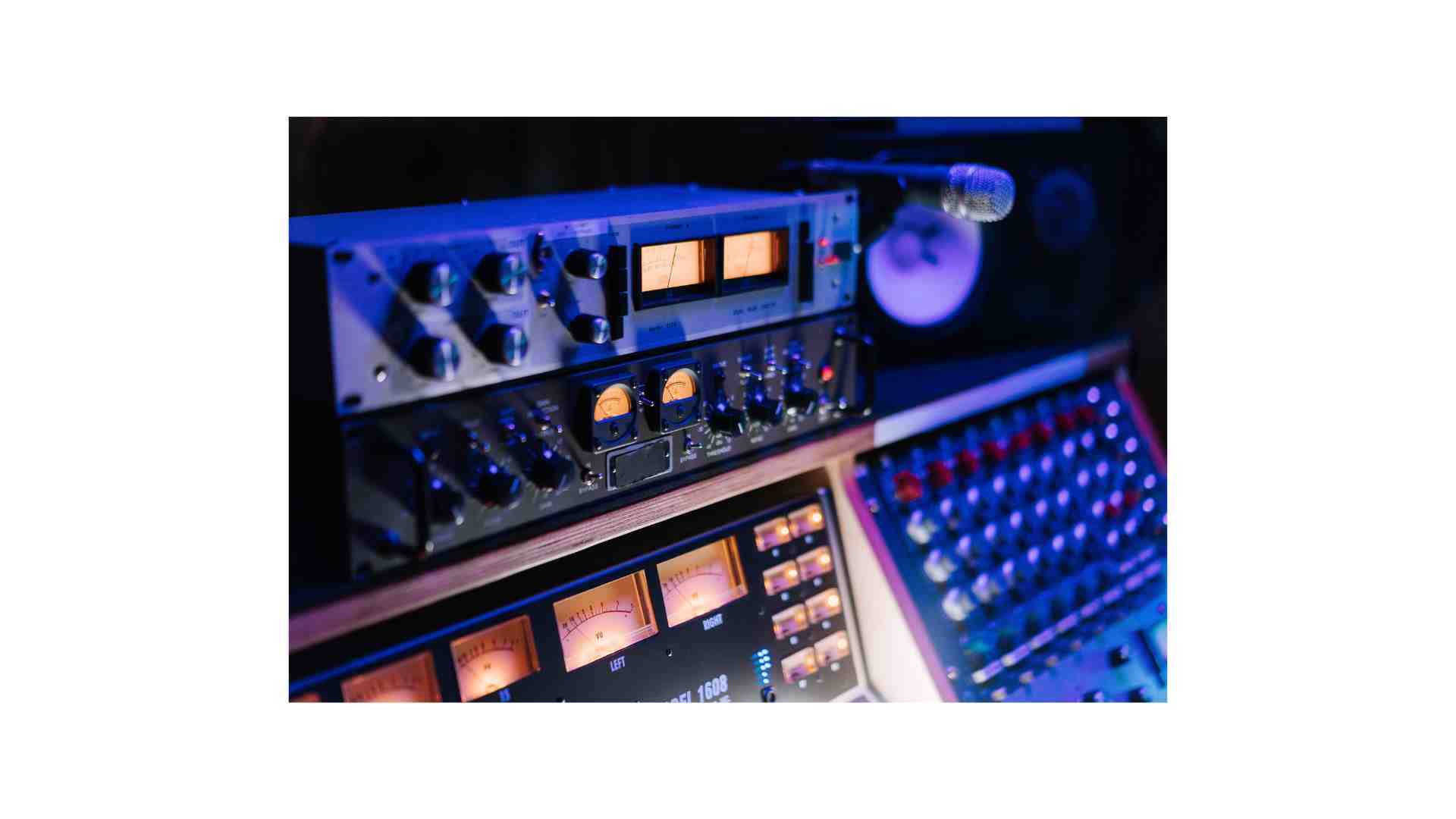
Music Production 101
Sep 25, 20235 Stages of Music Production
Music production is a multifaceted and ever-evolving journey that fuses artistic creativity with cutting-edge technology. For both newcomers and seasoned professionals, understanding the intricacies of the five essential stages of music production is very important. In this comprehensive guide, we will not only delve into each stage but also uncover the rich world of music production software, plugins, and advanced tech.
Stage 1: Pre-Production - The Blueprint of Sonic Excellence
Pre-production is the stage where your musical ideas start to take shape in the form of progressions and melodies. It's not just about sketching out ideas into demos; it's about crafting a blueprint for the story of the track you wish to produce. To embark on this stage with authority, immerse yourself in music theory, and expand your songwriting techniques by exploring unique chord progressions, and harmonies that resonate with your vision. At this juncture, digital audio workstations (DAWs) become your creative arsenal.

Experimentation is key; try different chord voicings, cadences, melodic structures, and harmonies to find what complements your musical identity. Digital audio workstations (DAWs) like Ableton Live and Logic Pro X offer vast libraries of virtual instruments (VSTs) and MIDI capabilities, granting you the tools to bring your most intricate musical ideas to life. You may also find several popular third-party vendors, like Arturia, Cymatics, Native Instruments, Spitfire Audio, etc. on the internet selling such VST plugins and other plugins that can be inculcated in your production process. In this stage, it's not just about capturing ideas—it's about shaping them into a cohesive musical narrative.
Key Stat: According to industry reports, the global market for music production software is projected to reach $12.87 billion by 2028, showcasing the increasing demand for advanced software tools among music producers.
Stage 2: Recording - Capturing the Soul of Sound
Recording is where your musical ideas transform into tangible art. Achieving clean recordings is non-negotiable, and it begins with investing in top-tier equipment. Acquire high-quality microphones, audio interfaces, and studio monitors to ensure that your sound capture is authentic and precise.

It's not just about hitting the record button—it's about creating an environment that brings about authenticity and precision. To achieve this, invest in top-tier equipment, starting with condenser or dynamic microphones that capture the nuances of your sound. High-quality audio interfaces and studio monitors are equally crucial for accurate sound reproduction. Specialized recording software like Pro Tools and Cubase offers precise control over multi-track recording, enabling you to seamlessly edit and manipulate your recordings.
Many DAWs offer free versions or trial periods, making them accessible to musicians on various budgets. For example, Reaper offers an affordable and feature-rich option, while GarageBand comes free for Mac users. These options allow you to dive into music production without a significant financial burden. It's crucial to explore these options and choose the one that aligns with your needs and resources. In this stage, every detail counts, from microphone placement to room acoustics, as you strive to capture the soul of your sound.
Key Stat: The rise of home recording is evident, with 73% of musicians and producers now creating music in home studios, driven by the affordability of recording equipment and software.
Stage 3: Arrangement and Mixing - The Alchemy of Sound
Arrangement and mixing are the stages where the ideas you’ve laid down finally form a certain structure and start to sound cohesive together. Here, the intricacies of sound manipulation come into play. Crafting the desired soundscape of your composition involves balancing individual elements, applying effects on the mix chains, and sculpting a tight sound that captivates listeners.
In this stage, every decision matters. Plugins become your creative allies, from equalization (EQs) and compression to reverb and delay units, each contributing to shaping the character of your instruments and vocals. To get into detail, investing in a diverse range of EQ and compressor plugins, from Parametric EQs to Tube EQs and Single-Band to Multi-Band Compressors, empowers producers with the tools to sculpt sound with precision. It allows for tonal versatility, surgical editing, dynamic control, and the ability to adapt to different genres and artistic expressions. With these plugins at their disposal, producers can achieve exceptional sound quality and creative innovation in their music productions.

A few other important plugins to have on your mix chain would be a De-Esser and Saturator if needed. Plugin chains offer a sophisticated approach, allowing you to combine multiple effects to sculpt your desired sound further. Techniques such as parallel processing, sidechain compression, and automation add depth, dynamics, and movement to your mix, elevating it from a mere collection of tracks to a complex, living composition. In this intricate journey, understanding the subtleties of sound design becomes your artistic advantage.
Key Stat: According to a survey of professional music producers, 87% reported that the use of premium and paid mixing plugins significantly improved the overall sound quality and impact of their mixes, highlighting the importance of these tools in achieving professional-grade audio results.
Stage 4: Mastering - Elevating Your Sound to Perfection
Mastering is the stage where your music reaches its full potential, achieving sonic excellence. While it may appear straightforward, it's a domain filled with its own challenges and intricacies. The aim of mastering is to optimize the overall sound quality, ensuring tonal balance, loudness consistency (LUFs, Loudness Units Full Scale is a measurement used to quantify the perceived loudness of audio content), and compatibility across all tracks within an album.
In this stage, AI-driven mastering tools like LANDR and iZotope Ozone have revolutionized the landscape. These tools analyze your tracks and apply automated enhancements based on industry standards, offering accessible, professional-level mastering capabilities. However, mastering is not just about automation; it's about the mastering engineer's keen ear, making subtle yet impactful adjustments without compromising the integrity of the music.

Another important tool is the usage of reference tracks. A reference track is a professionally mixed and mastered audio track used to compare and optimize the sound quality of your own music productions.
Reference tracks play a vital role in ensuring your music meets industry standards and translates accurately across various playback systems. The intricacies extend to technical details, such as file formats and bit-depth, ensuring your music is optimized for streaming platforms. In this realm, perfection is the standard, and mastering is the final touch that elevates your music closest to perfection.
Key Stat: In a recent survey, 68% of independent musicians reported using AI-driven mastering tools, marking a significant shift in the music production landscape.
Stage 5: Post-Production - Preparing for Global Audiences
Post-production is the bridge between your creative journey and the global stage. It's about converting your musical creations into formats suitable for distribution. This stage deals with more intricacies than one might initially imagine. It involves file format conversions, ensuring that your music meets the technical requirements of various streaming platforms, and optimizing metadata to enhance discoverability.

Technical nuances, such as sample rates and bit-depth, must be optimized for streaming, preserving the integrity of your sound. Metadata, including artist name, song title, and album information, enhances discoverability and ensures your music is correctly categorized. Distribution services like DistroKid and TuneCore provide seamless avenues for releasing your music to a global audience, simplifying the intricate process of music distribution. Additionally, data analytics tools allow you to monitor your music's performance, providing insights that inform your future strategies. In an era where streaming dominates the music industry, post-production is the final bridge between your creative vision and a worldwide audience.
Pro Tip: During mixing, ensure that you periodically take breaks and listen to your track at a lower volume level. This helps prevent ear fatigue and provides a fresh perspective on the mix's balance and tonal nuances, leading to better decision-making for a polished final result.
Mastering the art of music production is an ever-evolving journey that blends technical expertise with artistic expression. By understanding and executing the five essential stages of music production, along with the nuances of tools and techniques, you equip yourself with the knowledge and skills to create music that not only resonates with your audience but also stands out in the competitive music industry. Continue to explore, experiment, and hone your craft, and you'll find yourself on a path of continuous growth and creative achievement.
We at GreaseRelease, have a bunch of curators on our network who are looking for new & exciting music to push on their massive playlists. If you make music and want to reach a wider audience, check out our submission platform and get a chance to reach millions of listeners! Submit your tracks now!
Studies show that 80% of musicians constantly feel overwhelmed and we want to take that load off by helping you stay organized that's why, my team and I created the ProdPro 2.0
The ProdPro 2.0 is the ultimate organization tool built by and for musicians. Click here to learn more.
Don't miss my newsletter!
Join me on a music entrepreneurship journey with new tips and tricks delivered straight to your inbox.
We hate SPAM. We will never sell your information, for any reason.




